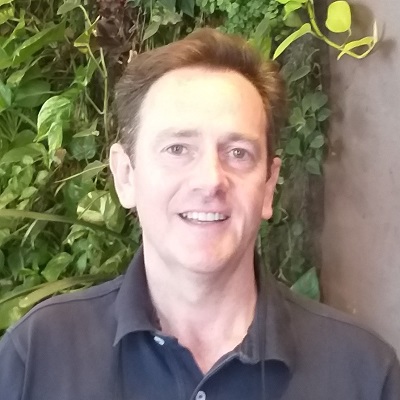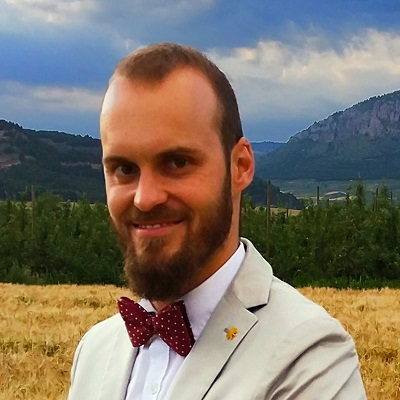Lifelong Learning Master's in City and Technology II
Lifelong Learning Master's in City and Technology II
Presentation
IAAC’s Master in City & Technology (1 or 2-year program) is a unique program oriented towards redefining the future of the urban, through innovative, evidence based and experimental approaches to understand, design and materialise cities. The program sits at the intersection of data science and urban design, with the goal of training professionals capable of critically and creatively managing uncertainty in design. The program develops cutting-edge tools, designs and approaches to effectively design in the context of planetary scale urbanisation, the climate change crisis and rapid technological MaCT shapes multidisciplinary leaders empowered to pioneer the transition of the urban environment in the era of big data, towards resilient & circular cities, inclusive & just communities and adaptive & more than human urban environments.During the Master in City & Technology + Thesis Project, students work for an additional 9 months on an Individual Thesis, focused on the development of one research or pilot project. To bridge the gap between education, research & practice, leaders from the professional fields of design, tech, networking and the third sector join the MaCT to place concrete challenges on the table, ensuring each individual thesis has direct impact and is meaningful within real-world scenarios. IAAC supports the student in selecting their Thesis subject in order to better orient them according to their future career interests and opportunities. Each student is assigned one or more Thesis Advisors from academia and are also paired with a Practice-based Advisor that together follow the conceptual, methodological and technical developments of the work throughout the year.
In parallel to the development of the Thesis Cluster, the second year of the Master in City & Technology offers a series of seminars enhancing both the theoretical, practical and computational skills of the students. Some of these seminars are articulated in collaboration with the other master programs (Program Synergies) offered by IAAC, giving the students the chance to diversify their skillset, as well as further improving their technical knowledge and capacities.
Program
MODULE 1- RS: Research Studio
- Seminar 1: Theory Concepts: Theories of the Urban I
- Seminar 2. Theory Instruments: Future Mobility
- Seminar 3. Computational Urban Design I
- Seminar 4. Digital Tools: Big Data and Urban Analytics I
Classes take place from October to December, Monday to Friday, from 10h to 19h.
MODULE 2
- DS: Design Studio
- Seminar 5. Digital Tools: Computational Urban Design II
- Seminar 6. Theory Concepts: Theories of the Urban II
- Seminar 7. Theory Instruments: Participatory Design & Technologies
- Seminar 8. Digital Tools: Big Data & Urban Analytics II
Classes take place from January to April, Monday to Friday, from 10h to 19h.
MODULE 3
- Lecture Series
- Seminar 9.Digital Tools: Computational Urban Design III
- Seminar 10. Digital Tools: Big Data & Urban Analytics III
- Seminar 11. Theory Instruments: AI and Data-Driven Resilient Cities
- Seminar 12. Theory Concepts: Theory of the Urban III
Classes take place from April to July, Monday to Friday, from 10h to 19h.
DVS-DEVELOPMENT STUDIO
- DvS-Development Studio
Classes take place from April to July, Monday to Friday, from 10h to 19h.
MODULE 5
- TP1. Final Thesis Project: Theory and Analysis
- Seminar 13: Research and Methods
Classes take place from October to December, Monday to Friday, from 10h to 19h.
MODULE 6
- Seminar 14: Digital Tools I: Urban Technologies
- Seminar 15: Digital Tools III: Artificial Intelligence (AI) for Future Cities
- TP2. Final Thesis Project: Research
- Seminar 16: Practise Fabrication: Digital Manufacturing in the Future City
Classes take place from January to April, Monday to Friday, from 10h to 19h.
FINAL THESIS PROJECT
- TP3. Final Thesis Project: Development
Classes take place from October to July, Monday to Friday, from 10h to 19h.
Coordinators and teaching staff
Other information
TUITION FEES
Importe matrícula nacionales UE: 26400
Importe matrícula nacionales españoles: 15900
ADMISSION REQUIREMENTS
Bachelor Degree: For architects, urbanists, designers, data and computer scientists who want to become urban technologists and lead the future of urban environments.
Application process:
Applications are considered on the basis of an assessment of the quality of prospective students, their motivation, skills and previous academic achievements. Candidates are encouraged to give details of their motivation to study any particular programme. Once applications are reviewed, candidates will be invited to an online interview with the IAAC academic coordinator of the program. IAAC applications can be submitted each academic year.
To apply for any of our educational programmes, the applicant must fill out the online application form.
For the online application, the following required documents should all be submitted in English, with the exception of the undergraduate diploma that needs to be translated into Spanish. (All documents must be uploaded onto the designated space on the online application form in PDF format).
For more information on the process, please visit www.iaac.net
ISSUANCE OF ACADEMIC DEGREES
The rate in force at the time of issuance of the title will be applied
PLACE WHERE IT TAKES PLACE
Barcelona Institute for Advanced Architecture of Catalonia (IAAC)
PRE-REGISTRATION
24/07/2024 until 30/09/2024
REGISTRATION
24/07/2024
FURTHER INFORMATION
https://iaac.net/educational-programmes/masters-programmes/master-in-city-technology/















